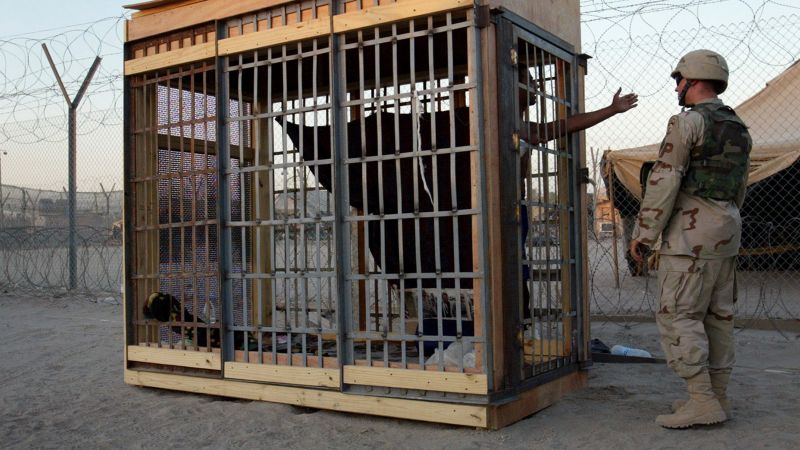A civil trial against a US defense contractor accused of engaging in and directing abuse at the Abu Ghraib prison in Iraq began in Virginia, two decades after revelations of horrific torture first surfaced. The trial began with testimony from one of the Iraqi men, Salah Al-Ejaili, who detailed the beatings, interrogations, and torture he endured while held at Abu Ghraib. Al-Ejaili and two other Iraqi men are suing military contract company CACI for their involvement in the abuse at the prison, where they say they were tortured before interrogation sessions in 2003. CACI has denied any wrongdoing in the case.
Al-Ejaili, now living in Sweden after seeking asylum there, described being forced to strip naked, bound to a wall, and subjected to humiliation, beatings, and psychological torture at the prison. He testified that he heard the screams of other detainees during interrogation sessions and detailed an instance where he was made to mop up his own vomit with his prison uniform. The trial marks the first time that Abu Ghraib survivors are able to bring their claims of torture to a US jury, seeking some semblance of justice for the atrocities they endured.
During opening statements, CACI’s attorney placed blame for the torture at Abu Ghraib on a few “bad apples” within the US military police, who have already been tried and, in some cases, sentenced to prison. The defense argued that CACI employees did not harm the plaintiffs and that the US military was responsible for managing the prison, not CACI. The plaintiffs’ attorney countered by claiming that CACI interrogators instructed and participated in the abuse at the prison and that providing justice in this civil trial could help alleviate some of the stain Abu Ghraib has left on the country.
The trial is expected to last two weeks and will feature testimony from the other two plaintiffs who still live in Iraq, as well as members of the US military who were convicted for their role in the abuse at Abu Ghraib. The proceedings are set to take place over video conference, and US District Judge Leonie Brinkema is presiding over the case. The discovery of graphic photos depicting guards abusing detainees at Abu Ghraib in 2004 sparked global outrage, and now, nearly two decades later, survivors are seeking accountability for the torture they endured at the hands of those entrusted with their care at the prison.


